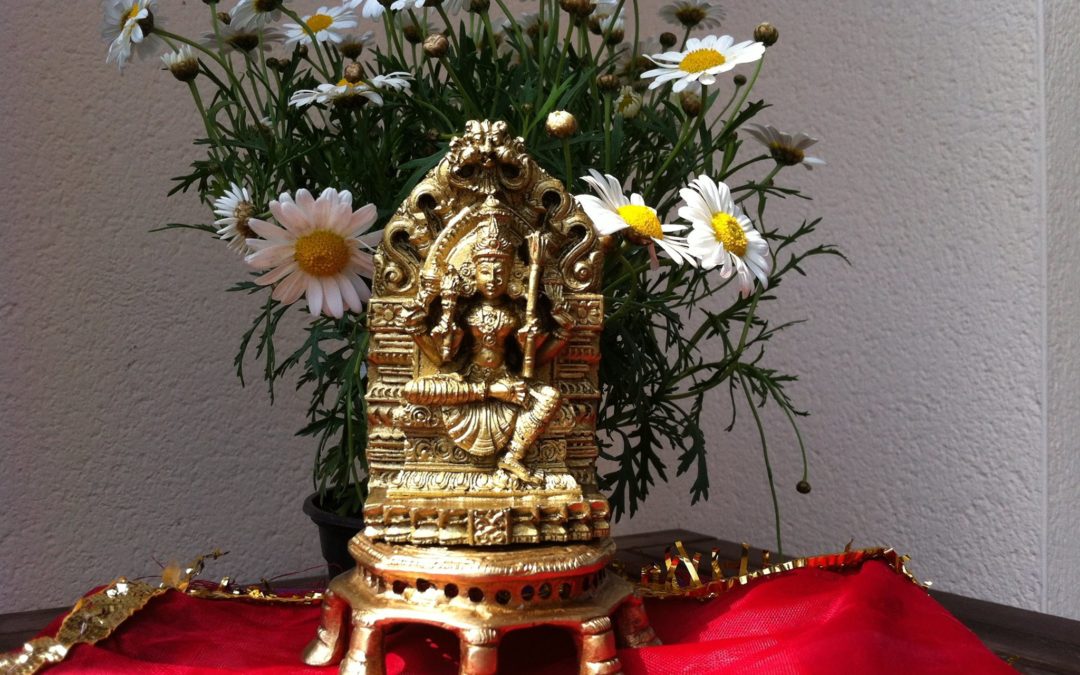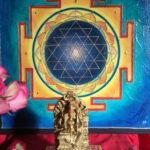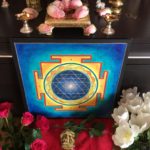In the Indian sacred literature, the texts embodying ‘Sahasranāma‘ or literally, the thousand names are an important genre, with the Lalitā Sahasranāma considered as one of the most important (along with the Viṣṇu Sahasranāma). This type of composition is referred to as a ‘stotram‘ which means ‘to praise‘; it is that by means of which divinity is praised.
These are not mantras from the Vedas, but are compositions from the Purāṇas, intricately symbolic legends and stories which captured the essence of the mystical poetry of the Vedas. The Lalitā’s 1000 names are an extract from the Brahmāṇḍa purāṇa and praises the Goddess as the Supreme being in the universe. Here’s the best version ever, recited by my Gurus, the Challakere Brothers:
Who is Goddess Lalitā?
Lalitā literally means the playful one. Her play consists in creation, sustenance and dissolution of the universe as also the lifting of aspirants from Samsāra – the cycle of births & deaths. She is depicted as the quintessence of spiritual sublimity and power and having an enchanting form with manifestations and achievements by way of destruction of the forces of evil and enhancement of the forces of good. (Swami Tapasyananda).
The recitation of this magnificent hymn therefore becomes a sacred practice that purifies us and helps remove obstacles that stand in the way of seeing the ultimate Truth. It is an offering that takes supreme concentration. Through the practice, you will find yourself out of your comfort zone, starting at what seems to be the deep end, glancing at the page number progressing excruciatingly slowly. Then at some point, you will find yourself in a flow, the rhythmic recitation of the verses in anuṣṭubh meter (4 sections of 8 syllables each), will rock you into a gentle trance. The practice ends and for many it seems like we just started!
A little excerpt from a previous event:
There is so much poetic imagery to be enjoyed through Her names.
Her forehead appears like the 8th day of the moon.
Her gait cannot even be compared with that of swans,
Her voice is more melodious than Sarasvatī’s veena,
the beauty of her feet defeat the beauty of a lotus flower and
She wears the Sun and the Moon as her earrings,
Her beauty manifests as the world around us.
In the last 4 years that I have been offering this practice, I receive all levels of practitioners. For many, this has been their very first time doing any chanting! And it works. As complex as the text might look, the humble oral tradition reigns supreme, everyone is able to join in. 8 syllables at a time, I chant, the group repeats and we go through the text in 1.5 hours.
We share the benefits of this practice with all beings long after this intense 1.5 hours of recitation. This is a Goddess who through Her various incarnations conquered many demons, the most formidable ones being lust, anger, greed, pride, jealousy and despair.
My lovely friend Lucia hosts this special event in her home and all donations received go to Villa Indigo, a respite house for seriously ill children. (Event taking place online now!)










This month’s event on 18th November, you can RSVP here: https://vedabelgium.com/event/1010/
Jay Mata di
Oct 26th 2020 event: https://us02web.zoom.us/meeting/register/tZcqd-CgqjwsGtZYawIGxpmQraJ_JaDNogtP?fbclid=IwAR3tIGQjWInMXYiKptEwwZExl1G3S0Zbyg6U2xNTdTEJtHDq0u_sxwxw1ZI